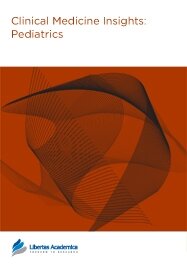

Publication Date: 19 Sep 2008
Journal: Clinical Medicine Insights: Pediatrics

1Department of Health Promotion and Research, National Institute of Public Health, Saitama, Japan. 2Department of Psychosocial Medicine, National Center of Child Health and Development, Tokyo, Japan. 3Centre for Community Child Health Research, Child Family Research Institute, University of British Columbia. 4Department of Society, Human Development, and Health, Harvard School of Public Health, MA, U.S.A.
Abstract
Background: The association between birth outcomes and child maltreatment remains controversial. The purpose of this study is to test whether infants without congenital or chronic disease who are low birth weight (LBW), preterm, or small for gestational age (SGA) are at an increased risk of being maltreated.
Methods: A hospital-based case-control study of infants without congenital or chronic diseases who visited the National Center for Child Health and Development, Tokyo, between April 1, 2002 and March 31, 2005 was conducted. Cases (N = 35) and controls (N = 29) were compared on mean birth weight, gestational age, and z-score of birth weight.
Results: SGA was significantly associated with infant maltreatment after adjusting for other risk factors (adjusted odds ratio: 4.45, 95% CI: 1.29–15.3). LBW and preterm births were not associated with infant maltreatment.
Conclusion: Infants born as SGA are 4.5 times more at risk of maltreatment, even if they do not have a congenital or chronic disease. This may be because SGA infants tend to have poorer neurological development which leads them to be hard-to-soothe and places them at risk for maltreatment.
PDF (239.86 KB PDF FORMAT)
RIS citation (ENDNOTE, REFERENCE MANAGER, PROCITE, REFWORKS)
BibTex citation (BIBDESK, LATEX)

This is my first experience working with the journal and it has been the easiest publication process that I can imagine. The links sent make login simple. The revisions are made so quickly. The decisions are made rapidly. We will definitely be working with this journal again.

All authors are surveyed after their articles are published. Authors are asked to rate their experience in a variety of areas, and their responses help us to monitor our performance. Presented here are their responses in some key areas. No 'poor' or 'very poor' responses were received; these are represented in the 'other' category.See Our Results
Copyright © 2013 Libertas Academica Ltd (except open access articles and accompanying metadata and supplementary files.)
FacebookGoogle+Twitter
PinterestTumblrYouTube